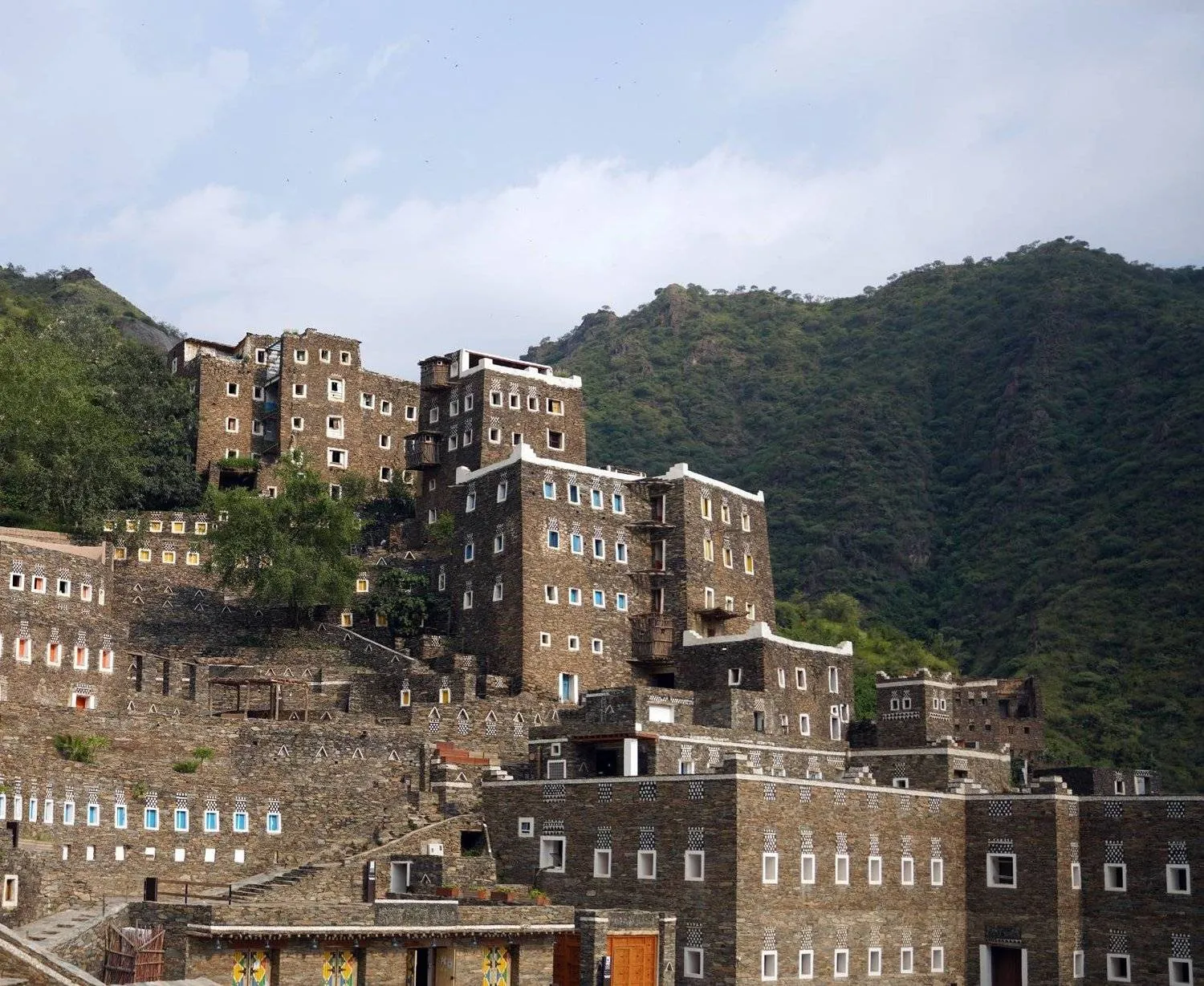Prince Mohammed bin Salman bin Abdulaziz Al Saud, Crown Prince, Prime Minister, and Chairman of Soudah Development, launched on Monday the masterplan to develop Soudah and parts of Rijal Almaa into Soudah Peaks – a luxury mountain tourism destination set 3,015 meters above sea level on Saudi Arabia's highest peak.
Situated within an extraordinary natural and cultural environment in the Aseer region (southwest Saudi Arabia), the project is a key part of the Public Investment Fund’s (PIF) efforts to diversify the economy by expanding vital industries such as tourism, hospitality, and entertainment, and supporting Aseer development strategy.
Crown Prince Mohammed, Chairman of Soudah Development’s Board of Directors, stated that Soudah Peaks represents a new era of luxury mountain tourism by providing an unprecedented living experience while preserving the natural environment, cultural, and heritage richness.
It is strategically aligned with Vision 2030 goals of expanding tourism and entertainment, supporting economic growth, attracting investments, contributing more than SAR29 billion to the Kingdom’s cumulative GDP, and creating thousands of direct and indirect job opportunities.
The Crown Prince said: “The masterplan reaffirms our commitment to global efforts in preserving the environment and natural resources for future generations and aims to contribute to diversifying national income sources and building a strong economy that attracts local and global investments.”
“Soudah Peaks will be a significant addition to the tourism sector in Saudi Arabia and place the Kingdom on the global tourism map, whilst highlighting and celebrating the country’s rich culture and heritage. Visitors will have the opportunity to discover the beauty of Soudah Peaks, explore its rich culture and heritage, and experience the authentic hospitality of the local community. Soudah Peaks will offer unforgettable experiences amidst lush greenery, above the clouds,” he added.
Soudah Peaks aims to offer high-end luxurious hospitality services to over two million visitors throughout the year by 2033. The masterplan is being designed to reflect the local traditional, and architectural styles, and will promote both the cultural and landscape heritage of the region.
The destination will be home to six unique development zones: Tahlal, Sahab, Sabrah, Jareen, Rijal, and Red Rock. Each will offer a range of world-class facilities including hotels, luxury mountain resorts, residential chalets, villas, premium mansion sites, entertainment and commercial attractions, as well as outdoor attractions dedicated to sports, adventure, wellness and culture.
Soudah Development will deliver 2,700 hospitality keys, 1,336 residential units, and 80,000 square meters of commercial space for Soudah Peaks by 2033. The masterplan will be developed over three phases, with 940 hotel keys, 391 residential units, and 32,000 square meters of retail space expected to be completed in 2027, within phase one.
Soudah Peaks is set across more than 627 square kilometers of awe-inspiring nature, with less than 1% of the land being acquired for building, reflecting Soudah Development’s commitment to protecting and preserving the environment, following best-in-class sustainability standards, and contributing to the efforts of the Saudi Green Initiative.
As a closed joint-stock company owned by PIF, Soudah Development aims to develop a unique luxury mountain tourism destination in Saudi Arabia, whilst preserving the natural environment and cultural heritage of the project area spread across Soudah and parts of Rijal Almaa.










